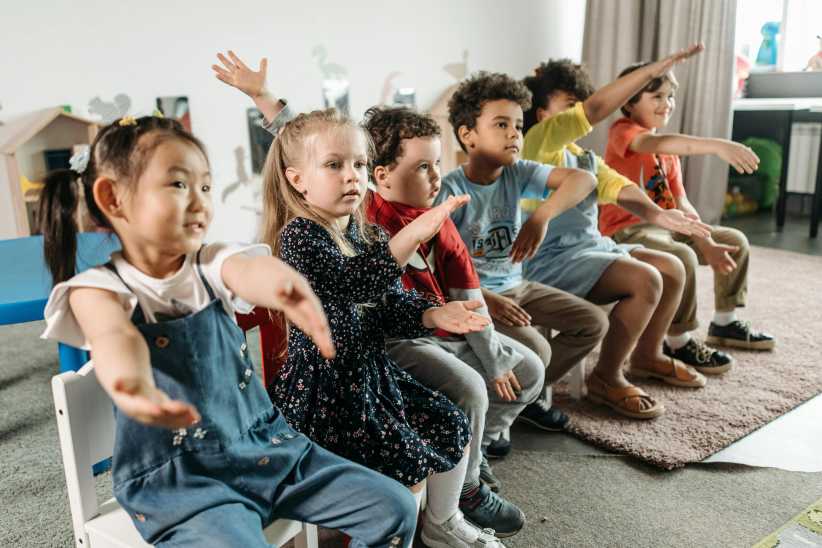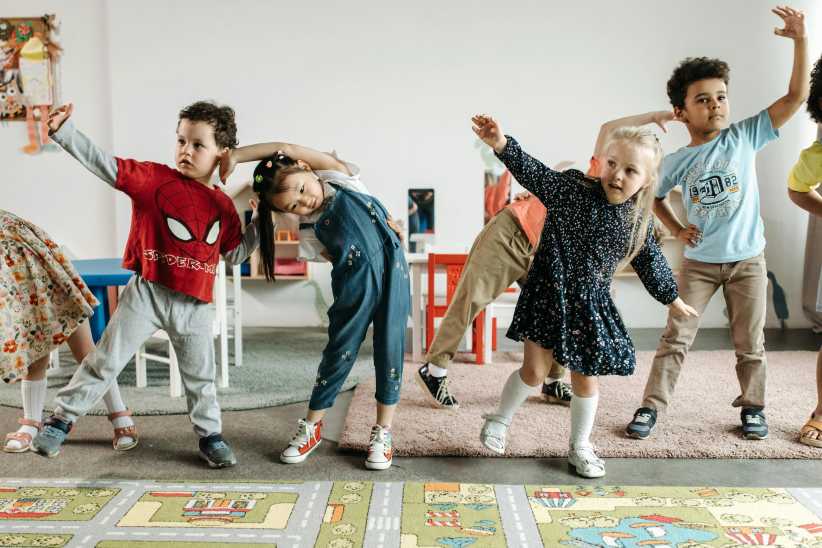
PLEASE NOTE: The city’s biggest Camp Fairs are coming up on Saturday, March 28, and Sunday, March 29, in Manhattan. For families with children ages 3 to teen, the Camp Fairs are free, child-friendly, and feature both Day Camps (in and around the city) and Sleepaway Camps (all over the Northeast). CLICK HERE for details and to register.
[Editor’s note #2: The trends are below, and for some great specialty and family camp options Click HERE! And of course come to January’s Camp Fairs!
Camp directors are always on the cutting edge of what’s important to both campers and their families. While many camp traditions and activities have remained the same over the years, lots of camps have also added new programs and types of camps available to fit the needs and interests of modern children. Here are five trends happening in the summer camp world that you may not be aware of.
Fitness Centers: Camp owners and directors have included physical activity in the summer camp program for generations. As some older children’s interest in exercise off the fields has increased, camp directors have taken notice and many have created fitness centers to complement other physical activities at camp. Fitness centers are equipped with state-of-the-art cardio machines such as treadmills, stationary bikes, and elliptical machines. They also have full weight rooms with free weights and machines as well as studios for yoga, pilates, and Zumba.
These fitness centers also serve as a nice place for staff to go on their off-periods, or on nights off. Some camps have converted existing spaces into fitness centers while others have constructed brand-new buildings. “It is crucial that the social and technical skills our children learn at camp are applied to their lives throughout the year. Teaching children both the importance and enjoyment of a healthy lifestyle through fitness and nutrition at an early age will have a lasting impact on their quality of life,” says Adam Baker, owner and director of Camps Equinunk and Blue Ridge, brother-sister sleepaway camps in Equinunk, PA. “We have committed exceptional trainers and facilities to help our campers develop an outlook of healthy living and the tools to needed to accomplish it.”

Individual Instruction: For campers who want to focus on certain skills beyond scheduled activities or electives, some camps offer individualized instruction in activities such as horseback riding, golf, gymnastics, and tennis. The individual instruction allows campers who want to focus on one sport the chance to spend dedicated time at camp participating in that activity and to get a more individual experience. “We offer private instruction for 40-50 minutes in tennis and gymnastics… Private instruction offered 1-3 times per week allows campers who compete at high levels of their sports to attend general camps as opposed to specialty camp, and still return to their teams or lessons in the fall physically fit and sometimes with new skills under their belt,” says Corey Dockswell, director of Camp Wicosuta, a girls’ sleepaway camp in Hebron, NH. “Private lessons work just as effectively for beginners and intermediates, giving campers one-on-one instruction, allowing for maximized growth in an activity area.”
Tutoring: Camp professionals know that for some campers, summer is a time that they need to use to keep up with academics. Camps are offering families supplemental tutoring programs where children can get individualized tutoring from professional tutors while at camp. “We implemented our tutoring program several years ago in response to an interest by many of our camp families and as a result of our own observations as to how such a program could augment the experience offered to our campers,” says Doris Rosen, director of Hampton Country Day Camp in East Hampton, NY. “We had found that children were leaving camp early to attend private tutoring sessions, or were receiving tutoring at home before camp and were getting to camp late and ‘out of sync’ with the camp day. We created the program so our campers could both maintain and sharpen their academic skills without infringing on their summer camp experience.” Parents who elect to enroll their children in tutoring work closely with their child’s school teachers and tutors at camp to create a program that suits the needs of each child.

New Camper Get-Togethers: Many day and sleepaway camps are hosting picnics and barbeques before camp begins for new campers and their parents to help ease any feelings of apprehension as the first day of camp approaches. “To make our first-time campers feel more comfortable with camp, we offer a first-timers’ orientation at camp two weeks prior to the start of our summer. Campers and their parents take group tours with the directors, and it gives campers the opportunity to get the lay of the land, and see where they will be living and even try some activities,” says Scott Rothschild, director of Kenmont and Kenwood Camps, brother-sister resident camps in Kent, CT. “We feel it is a great way for children to meet other new campers, meet the directors and staff and learn more about their summer home.” Sometimes these get-togethers are hosted at the camp, other times at a central location where a lot of new campers live. These events leave campers feeling more comfortable and very excited about going to camp.
Niche Camps: Whether your child likes to knit, build things, or tend to animals, there is a camp that focuses on that activity. Over the years, the number of niche camps has grown and children looking for a camp that offers unique programming have many to choose from. For example, for children interested in farming, Frost Valley YMCA’s Farm Camp offers a blend of traditional sleepaway camp activities with food, farming, and agriculture. During a two-week session, campers live on a working farm and get real hands-on experience. “Children tend to animals such as chickens, llamas, sheep, and goats, harvest and use vegetables grown in the organic garden,” says Andy Szymczak, director of the Farm Camp. “They are also taught about the stewardship for landscape and bigger food concepts. Chores on the farm include campers milking goats, shearing and processing wool from sheep, collecting eggs and bottle feeding calves.”






















